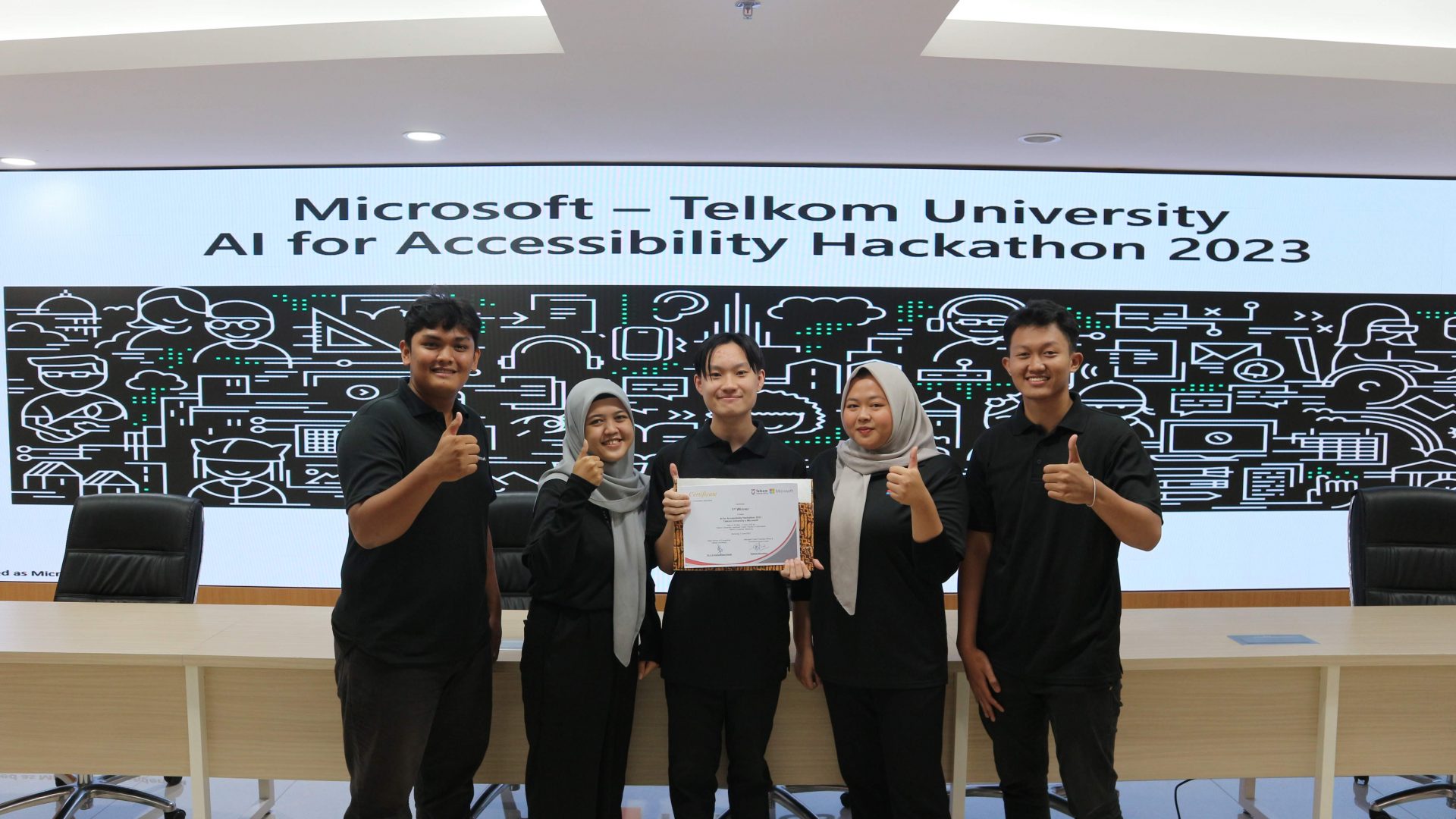Winners of the Microsoft AI for Accessibility Hackathon 2023 showcase how inclusion is innovation in Asia Pacific
- Written by Auzzi Shopping
SINGAPORE - Media OutReach - 28 June 2023 - The Microsoft AI for Accessibility (AI4A) Hackathon 2023 is an annual event for teams in Asia Pacific to tackle problem statements and build solutions for a more inclusive and accessible society.
In 2023, 119 teams of undergraduates from universities in Indonesia, Malaysia, Philippines, Singapore, Sri Lanka, Thailand, and Vietnam created applications that addressed real-life challenges for people with disabilities. 
In the Philippines, Team Cognitics from Lyceum of the Philippines University - Batangas invented a smart band [placed on the wrist] to proactively administer medication via psychometrics technology. Fusing AI with psychometrics technology, this emergency response product provides a rapid means to detect emergencies and administer necessary medication.
Team A-EYE from Universiti Teknologi Malaysia developed an application prototype to help visually impaired pedestrians traverse roads and navigate traffic safely. Using Azure Custom Vision, this working prototype alerts people with visual impairment to prevent colliding with an object.
National University of Singapore, School of Computing Team WRAP developed NAVI, a navigation app designed to empower individuals with visual impairments to travel confidently. NAVI offers audible route directions and utilizes AI technology to detect obstructions and street markings in real-time through the smartphone camera. Moreover, the app accepts speech input for convenient control and provides a user-friendly interface with a large display and audible feedback, ensuring ease of use for the visually impaired.
From Sri Lanka, Team Hear Me, Sri Lanka Institute of Information Technology introduced Hear Me, an AR-based self-learning application for children with hard of hearing. This interactive platform provides a rich learning environment that enhances communication skills and cognitive development, proving an invaluable resource for children communicating through sign language.
In Thailand, Team DEVA from King Mongkut's University of Technology Thonburi presented Neon, an AI-enabled presentation generator to assist people with visual impairments, highlighting the profound influence of technology on enhancing the independence and life quality of visually impaired individuals.
Team ATP from Royal Melbourne Institute of Technology in Vietnam introduced AI SpeechCompanion, an application that supports people who stutter. The solution creates a personalized experience tailored to each person's capabilities by allowing them to take notes, practice speaking, and receive encouragement. This will allow individuals who stutter to become more confident, empowering them in their daily lives.
'With more than 1.3 billion PWDs in the world and 690 million here in Asia Pacific, ensuring accessibility to technology has never been more urgent. Inclusive AI empowers individuals with disabilities, enabling them to fully participate in various aspects of life, including education, employment, and social interactions. It fosters equal opportunities, reduces biases, and breaks down systemic inequalities. I'm so proud to see the next generation of entrepreneurs and developers embrace inclusivity through programs like the Microsoft AI for Accessibility Hackathon. Together, we're ensuring everyone can thrive, contribute, and benefit from the transformative potential of AI,' said Pratima Amonkar, Chair for D&I and Accessibility for Microsoft Asia Pacific.
Problem statements and winning hackathon
Six non-profit organizations from the seven countries contributed problem statements for the university students to hack. The teams built innovative solutions and AI-enabled applications on Microsoft Azure and presented them to a panel of judges from both technical and non-technical fields. The winning teams in each country were able to demonstrate a deep understanding of accessibility, design innovative solutions that were original, and showcase a willingness to take risks in the pursuit of creating value for people with disabilities. The teams needed to show real-world impact, business models, and go-to-market plans to launch their solutions.
Categorized into Daily Life, Employability, Communication and Education, they provided students with authentic scenarios and situations faced by people with disabilities. Daily Life challenges include obstacles that can't be detected by white canes, using automated cash machines, digital applications, cooking appliances and personal grooming. Under Employability, the statements include job matching, training, assessment, interview support and workplace navigation. In Communication, students explored how to explain facial expressions in a video conference, automating speech therapy, and in Education, making learning accessible to rural communities.
Hashtag: #Microsoft
The issuer is solely responsible for the content of this announcement.
About Microsoft
Microsoft (Nasdaq "MSFT" @microsoft) enables digital transformation for the era of an intelligent cloud and an intelligent edge. Its mission is to empower every person and every organization on the planet to achieve more.



























